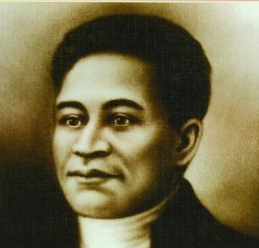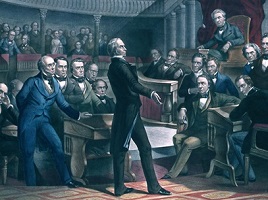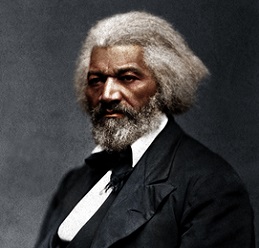In 1773 Phillis Wheatley published her first and what was to be her only book of poetry. After failing to find a publisher in the colonies, Selina Hastings, the countess of Huntingdon, made its publication possible. She secured Archibald Bell of London as the printer. See Biography for more.
Letter from Master
Th book’s preface contains a letter written by her master John Wheatley in which he explains how Phillis got her education without the assistance from regular school education. She was taught by the family and her own curiosity led her to write. He also stated that she was a precocious reader as eighteen months after her arrival to America she was fluently reading difficult passages of the Bible. John Wheatley also confirmed that Phillis was inclined to learn the Latin tongue, in which she had made some progress.
Preface and Attestation
The preface also contains an attestation verifying the authorship of Wheatley’s poems. The attestation contains the signatures of eighteen notable Bostonians: Thomas Hutchinson, Andre Oliver, Thomas Hubbard, Joen Ervin, James Pitts, Harrison Gray, James Bowdoin, John Hancock, Joseph Green, Richard Carrey, Rev. Charles Chauncey, Rev. Matthew Byles, Rev. Edward Pemberton, Rev. Andrew Elliot, Rev. Samuel Cooper, Rev. Samuel Mather, Rev. John Moorhead and John Wheatley (her master). These people served as judges of Wheatley’s ability to write and their signatures certify that Wheatley is the author of her work.
Cover Page – Scipio Moorhead
The cover page of “Poems on Various Subjects, Religious and Moral” is a portrait of Phillis engraved by Scipio Moorhead. Scipio was a servant slave of Rev. John Moorhead. The portrait shows Phillis wearing a colonial American dress sitting at her desk and writing with quill pen. Scipio was taught drawing by Sarah Moorhead, the wife of Rev. Moorhead.
Content
The following are the 39 poems that appear in Phillis Wheatley’s book “Poems on Various Subjects, Religious and Moral”.
MAECENAS, you, beneath the myrtle shade,
Read o’er what poets sung, and shepherds play’d. (continue reading)
O Thou bright jewel in my aim I strive
To comprehend thee. Thine own words declare
Wisdom is higher than a fool can reach. (continue reading)
To the University of Cambridge, in New England
WHILE an intrinsic ardor prompts to write,
The muses promise to assist my pen;
‘Twas not long since I left my native shore (continue reading)
To the King’s most Excellent Majesty. 1768
Your subjects hope, dread Sire– The crown upon your brows may flourish long, And that your arm may in your God be strong! (continue reading)
On being brought from Africa to America
‘Twas mercy brought me from my Pagan land,
Taught my benighted soul to understand
That there’s a God, that there’s a Saviour too: (continue reading)
On the Death of the Rev. Dr. Sewell. 1769
ERE yet the morn its lovely blushes spread,
See Sewell number’d with the happy dead.
Hail, holy man, arriv’d th’ immortal shore, (continue reading)
On the Death of the Rev. Mr. George Whitefield. 1770
HAIL, happy saint, on thine immortal throne,
Possest of glory, life, and bliss unknown;
We hear no more the music of thy tongue, (continue reading)
On the Death of a young Lady of Five Years of Age
FROM dark abodes to fair etherial light
Th’ enraptur’d innocent has wing’d her flight;
On the kind bosom of eternal love (continue reading)
On the Death of a young Gentleman
WHO taught thee conflict with the pow’rs of night,
To vanquish satan in the fields of light?
Who strung thy feeble arms with might unknown, (continue reading)
To a Lady on the Death of her Husband
GRIM monarch! see, depriv’d of vital breath,
A young physician in the dust of death:
Dost thou go on incessant to destroy, (continue reading)
YE martial pow’rs, and all ye tuneful nine,
Inspire my song, and aid my high design.
The dreadful scenes and toils of war I write, (continue reading)
Thoughts on the Works of Providence
ARISE, my soul, on wings enraptur’d, rise
To praise the monarch of the earth and skies,
Whose goodness and benificence appear (continue reading)
To a Lady on the Death of three Relations
WE trace the pow’r of Death from tomb to tomb,
And his are all the ages yet to come.
‘Tis his to call the planets from on high, (continue reading)
To a Clergyman on the Death of his Lady.
WHERE contemplation finds her sacred spring,
Where heav’nly music makes the arches ring,
Where virtue reigns unsully’d and divine, (continue reading)
ATTEND my lays, ye ever honour’d nine,
Assist my labours, and my strains refine;
In smoothest numbers pour the notes along, (continue reading)
SOON as the sun forsook the eastern main
The pealing thunder shook the heav’nly plain;
Majestic grandeur! From the zephyr’s wing, (continue reading)
SAY, heav’nly muse, what king or mighty God,
That moves sublime from Idumea’s road?
In Bosrah’s dies, with martial glories join’d, (continue reading)
MNEME begin. Inspire, ye sacred nine,
Your vent’rous Afric in her great design.
Mneme, immortal pow’r, I trace thy spring: (continue reading)
THY various works, imperial queen, we see,
How bright their forms! how deck’d with pomp
by thee! (continue reading)
A Funeral Poem on the Death of C. E. an Infant of Twelve Months
Through airy roads he wings his instant flight
To purer regions of celestial light;
Enlarg’d he sees unnumber’d systems roll, (continue reading)
To Captain H-D, of the 65th Regiment
SAY, muse divine, can hostile scenes delight
The warrior’s bosom in the fields of fight?
Lo! here the christian and the hero join (continue reading)
HAIL, happy day, when, smiling like the morn,
Fair Freedom rose New–England to adorn:
The northern clime beneath her genial ray, (continue reading)
Ode to Neptune. On Mrs. W—–‘s Voyage to England
WHILE raging tempests shake the shore,
While AElus’ thunders round us roar,
And sweep impetuous o’er the plain (continue reading)
To a Lady on her coming to North-America with her Son, for the Recovery of her Health.
INDULGENT muse! my grov’ling mind inspire,
And fill my bosom with celestial fire.
See from Jamaica’s fervid shore she moves, (continue reading)
To a Lady on her remarkable Preservation in an Hurricane in North-Carolina
THOUGH thou did’st hear the tempest from afar,
And felt’st the horrors of the wat’ry war,
To me unknown, yet on this peaceful shore (continue reading)
To a Lady and her Children, on the Death of her Son and their Brother
O’ERWHELMING sorrow now demands my song:
From death the overwhelming sorrow sprung.
What flowing tears? What hearts with grief opprest? (continue reading)
ON Death’s domain intent I fix my eyes,
Where human nature in vast ruin lies:
With pensive mind I search the drear abode, (continue reading)
On the Death of Dr. Samuel Marshall. 1771
THROUGH thickest glooms look back, immortal shade,
On that confusion which thy death has made:
Or from Olympus’ height look down, and see (continue reading)
To a Gentleman on his Voyage to Great-Britain for the Recovery of his Health
WHILE others chant of gay Elysian scenes,
Of balmy zephyrs, and of flow’ry plains,
My song more happy speaks a greater name, (continue reading)
TO cultivate in ev’ry noble mind
Habitual grace, and sentiments refin’d,
Thus while you strive to mend the human heart, (continue reading)
On the Death of J. C. an Infant
NO more the flow’ry scenes of pleasure rife,
Nor charming prospects greet the mental eyes,
No more with joy we view that lovely face (continue reading)
An Hymn to Humanity To S. P. G. Esq
LO! for this dark terrestrial ball
Forsakes his azure–paved hall
A prince of heav’nly birth! (continue reading)
To the Honourable T. H. Esq; on the Death of his Daughter
WHILE deep you mourn beneath the cypress–shade
The hand of Death, and your dear daughter laid
In dust, whose absence gives your tears to flow, (continue reading)
Apollo’s wrath to man the dreadful spring
Of ills innum’rous, tuneful goddess, sing!
Thou who did’st first th’ ideal pencil give, (continue reading)
To S. M. a young African Painter, on seeing his Works
TO show the lab’ring bosom’s deep intent,
And thought in living characters to paint,
When first thy pencil did those beauties give, (continue reading)
To his Honour the Lieutenant-Governor, on the Death of his Lady. March 24, 1773
ALL–Conquering Death! by thy resistless pow’r,
Hope’s tow’ring plumage falls to rise no more!
Of scenes terrestrial how the glories fly, (continue reading)
A Farewel to America. To Mrs. S.W
ADIEU, New–England’s smiling meads,
Adieu, the flow’ry plain:
I leave thine op’ning charms, O spring, (continue reading)
A BIRD delicious to the taste,
On which an army once did feast,
Sent by an hand unseen; (continue reading)
An Answer to the Rebus, by the Author of these Poems
THE poet asks, and Phillis can’t refuse
To show th’ obedience of the Infant muse.
She knows the Quail of most inviting taste (continue reading)


